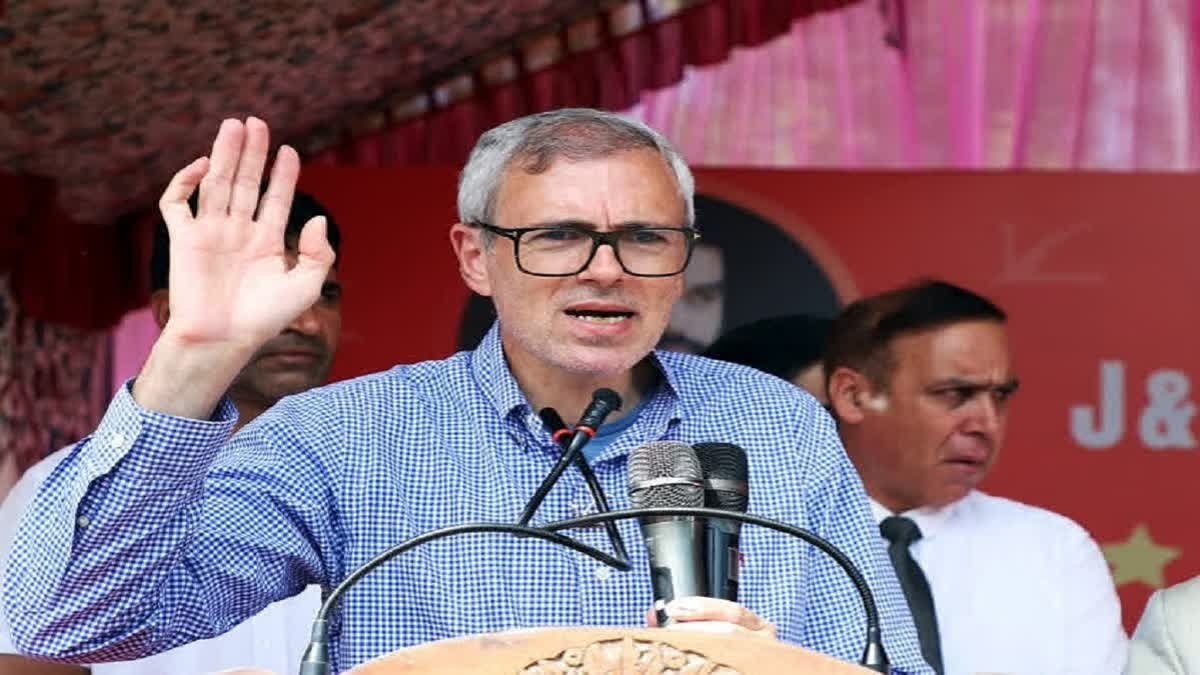Srinagar: Jammu and Kashmir Chief Minister Omar Abdullah, speaking on the fifth day of the Jammu and Kashmir Assembly during the Motion of Thanks on Lieutenant Governor Manoj Sinha's address, emphasised the importance of restoring statehood and addressing issues that affect the dignity and freedom of expression of the region's residents.
Reflecting on the recent passage of a resolution calling for the restoration of Jammu and Kashmir’s Special Status, Omar Abdullah said, "With the passage of the resolution, I realised people have got their voice back. We were feeling suffocated. Now, even those who were silent in the last five years are finding their voices again."
He pointed out that many individuals, who had once abandoned their "pens and keyboards," are now re-engaging in public discourse. Abdullah referred to freedom of speech as "the biggest portion of democracy."
He urged his colleagues to avoid shaping policies based on misinformation, advising, "Don't make policy based on the 'University of WhatsApp and Facebook."
While acknowledging the complexity of maintaining security in a Union Territory, Abdullah stressed that although the elected government shares responsibility for law and order, it is ultimately beyond their control. "Our government stands with security forces in their mission to normalise the situation," he said, adding that public cooperation — rather than harassment — is key to achieving lasting peace in the region.
He mentioned ongoing dialogues with security officials to mitigate concerns, particularly the delays caused when highways are closed for security convoys. "We need to find a way to ease public inconvenience during these convoy movements," he stated.
The Chief Minister was also critical of the current Criminal Investigation Department (CID) verification process, especially regarding passport and employment screening, which he argued has been "weaponised" to harass citizens.
He called for reforms to relieve the public from what he described as unnecessary scrutiny. Additionally, he urged the Centre to consider releasing detainees held without formal charges, noting that while this is outside the Assembly's jurisdiction, it remains a concern for justice.
Abdullah reiterated his call for the full restoration of statehood, expressing dissatisfaction with the Union Territory status, which he characterised as an incomplete form of self-governance. "This is not the assembly we want in terms of power. But this assembly is a way to reach there," he stated. He emphasised the symbolic and practical importance of statehood, explaining, "We have the right to live with dignity. Our identity has been wounded, and statehood is essential to healing that wound."
He further asserted that Jammu and Kashmir’s key assets, such as Gulmarg and Pahalgam, should remain under local control. "People say we will sell Gulmarg; they should come out of that misunderstanding," he remarked, advocating for a balance that would allow for outside investment while safeguarding local resources.
On infrastructure, Abdullah highlighted recent commitments, noting that the Union Minister of Power Manohar Lal Khattar has agreed to provide an additional 300 megawatts of electricity to address ongoing power shortages. Meanwhile, the Minister for Roads and Transport, Nitin Gadkari, has promised a dedicated package for completing bridges in the region.
Omar Abdullah reaffirmed his administration's commitment to fulfilling its governance and welfare promises, expressing gratitude to the people of Jammu and Kashmir for their continued trust. "We won't waste the mandate given to us. We will fulfill our promises of governance and welfare for the people," he concluded his speech with a couplet by Urdu poet Mohsin Naqvi: "Jis ko toofan se ulajne ki adat ho Mohsin, aisi kishti ko, samandar bhi dua deta hai. (Those who are accustomed to getting entangled with storms, Mohsin, even the sea blesses such a boat)."
Read More



